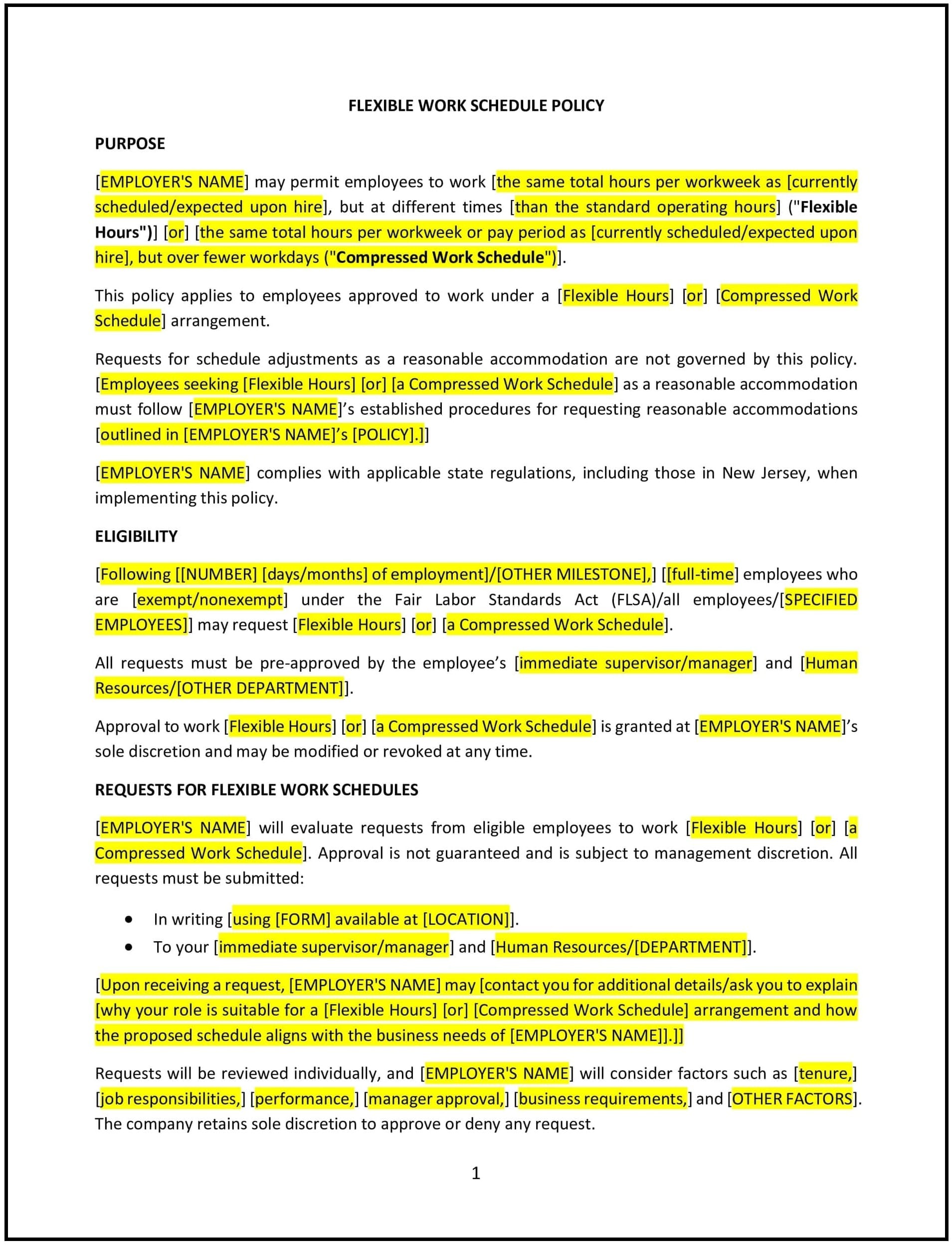Flexible work schedule policy (New Jersey): Free template
Got contracts to review? While you're here for policies, let Cobrief make contract review effortless—start your free review now.

Customize this template for free
Flexible work schedule policy (New Jersey)
A flexible work schedule policy helps New Jersey businesses provide employees with alternative work arrangements that support work-life balance while maintaining productivity. This policy outlines eligibility requirements, scheduling options, request procedures, and expectations for performance and availability. It also sets guidelines for managing remote work, adjusted hours, and hybrid schedules.
By adopting this policy, businesses in New Jersey can attract and retain talent, enhance job satisfaction, and improve operational flexibility.
How to use this flexible work schedule policy (New Jersey)
- Define flexible scheduling options: Outline available work arrangements, such as remote work, compressed workweeks, staggered hours, or hybrid schedules.
- Establish eligibility criteria: Specify which employees or roles qualify for flexible schedules based on job responsibilities and business needs.
- Outline request procedures: Require employees to submit a formal request outlining their preferred schedule and expected impact on their duties.
- Set expectations for availability: Define core working hours or required check-in times to ensure team collaboration and responsiveness.
- Address performance and productivity: Reinforce that flexible work arrangements should not impact job performance, deadlines, or customer service.
- Provide communication guidelines: Establish how employees should remain accessible via email, phone, or virtual meetings during work hours.
- Outline trial periods and adjustments: Allow businesses to implement a trial period for new flexible work schedules and make adjustments as needed.
- Review and update: Regularly assess the policy to reflect business needs, employee feedback, and industry best practices.
Benefits of using this flexible work schedule policy (New Jersey)
This policy provides several benefits for New Jersey businesses:
- Enhances work-life balance: Allows employees to manage personal and professional responsibilities more effectively.
- Increases productivity: Enables employees to work during their most productive hours while meeting business needs.
- Reduces absenteeism: Provides alternative scheduling options that help employees address personal obligations without missing work.
- Improves employee retention: Attracts and retains top talent by offering flexibility in work arrangements.
- Supports business continuity: Helps businesses maintain operations during disruptions by allowing remote or alternative work setups.
Tips for using this flexible work schedule policy (New Jersey)
- Communicate the policy clearly: Ensure employees understand available scheduling options and request procedures.
- Train managers on flexible work arrangements: Provide guidance on evaluating requests and maintaining team coordination.
- Use technology to support flexibility: Implement collaboration tools and communication platforms to keep remote and hybrid employees connected.
- Monitor performance regularly: Track productivity and employee engagement to ensure flexible schedules align with business goals.
- Review the policy regularly: Update the policy based on employee feedback, business needs, and industry trends.